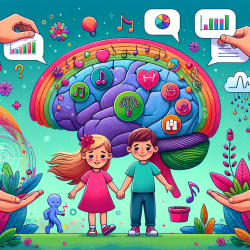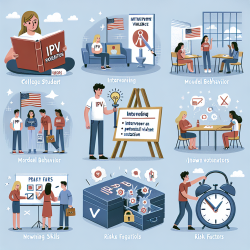Introduction
In the realm of online learning, especially during the COVID-19 pandemic, the dynamics of student interaction have shifted significantly. A recent study titled "The association of perceived sociability and social intelligence with loneliness in online learning among nursing students?" explores the intricate relationship between perceived sociability, social intelligence, and loneliness among nursing students in Turkey. The findings of this study offer valuable insights that can be leveraged by practitioners in the field of online therapy and education to enhance student outcomes.
Understanding the Study
The study involved 246 nursing students and used various scales to measure sociability, social intelligence, and loneliness. The results indicated that both perceived sociability and social intelligence were significant negative predictors of loneliness in online learning environments. This means that students who perceived themselves as sociable and possessed higher social intelligence experienced lower levels of loneliness.
Implications for Practitioners
For practitioners providing online therapy services, such as TinyEYE, these findings underscore the importance of fostering sociability and social intelligence in online settings. Here are some actionable strategies:
- Interactive Learning Tools: Utilize platforms that encourage interaction among students. Tools like breakout rooms in Zoom or collaborative platforms like Edmodo can enhance perceived sociability.
- Social Intelligence Development: Incorporate activities that promote social skills, such as role-playing or group discussions, to enhance students' ability to interpret and respond to social cues.
- Regular Check-ins: Conduct regular one-on-one sessions to assess students' social and emotional well-being, providing support where needed.
- Blended Learning Approaches: Where possible, combine online learning with face-to-face interactions to cater to different learning preferences and reduce feelings of isolation.
Encouraging Further Research
While this study provides a solid foundation, further research is needed to explore the application of these findings across different educational settings and age groups. Practitioners are encouraged to conduct their own studies or collaborate with academic institutions to expand the knowledge base on this topic.
Conclusion
The study highlights the critical role of perceived sociability and social intelligence in mitigating loneliness in online learning environments. By implementing strategies that enhance these factors, practitioners can significantly improve student outcomes. For those interested in delving deeper into the research, the original paper can be accessed here.










